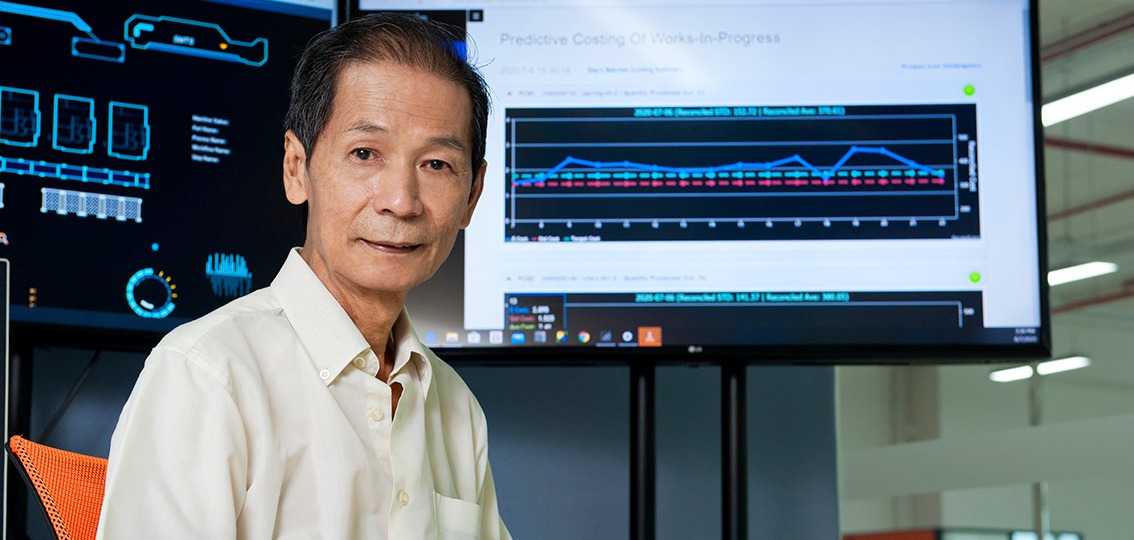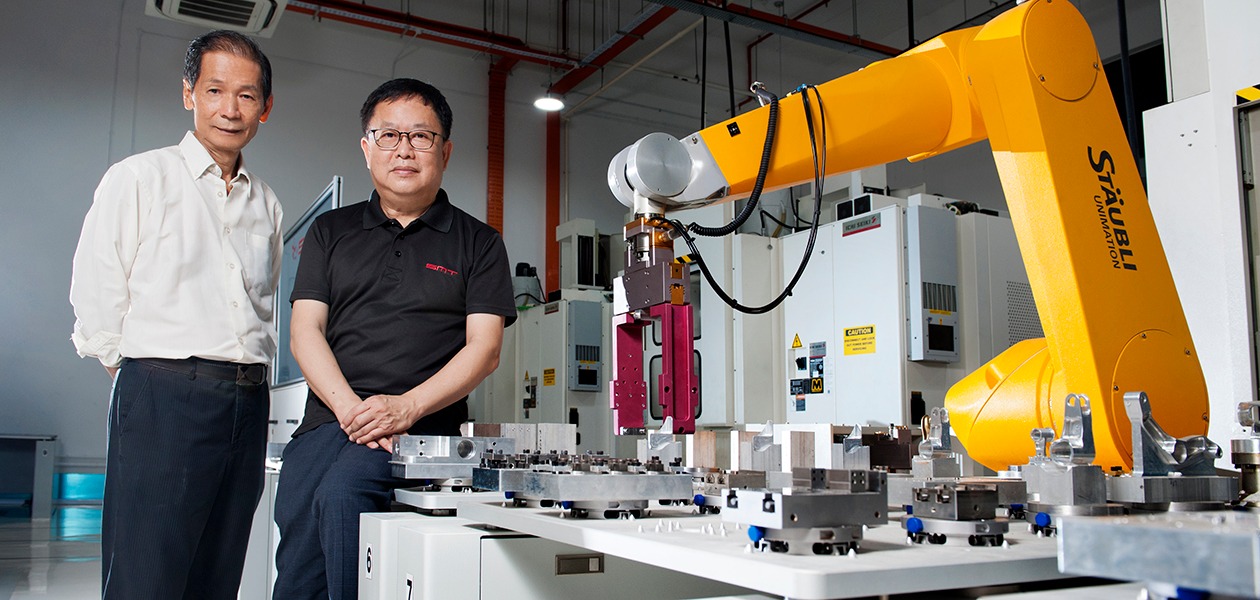Manufacturing costs can be reduced by new intelligent systems. A first-of-its-kind software for such uses has been developed by LeanCost International and SMT Technology, which were matchmade by IPI.
The sight of Moses Tan hunched over a computer and typing away furiously was nothing new to his peers or family. As a consultant, his work involved advising manufacturing companies on workflow issues.
But even during his spare time, he remained glued to the screen. This was no regular work – he was busy developing an algorithm that would help the manufacturing industry accurately report product costs while also revealing inefficiencies in their processes.
After seven arduous years of programming, a new manufacturing data analytics algorithm was born in 2017. The same year, Tan co-founded IT start-up LeanCost International to chart a new path towards Industry 4.0 — the fourth industrial revolution.
The goal was to motivate high-mix low-volume (HMLV) manufacturers to adopt smart technologies to automate and optimise their operations into an ideal “zero-loss” strategy, where improvements in production would produce high returns on investment.
Turning complex data into simple sums
Product costing is seldom accurate as cost accounting methods have been using broad estimates of the costs incurred in production, instead of calculating based on the resources expended at each stage of the production.
While these miscalculations can be as small as one to 10 percent per part, such errors can result in some products being sold at a loss or charged at uncompetitive prices. As HMLV manufacturing such as precision engineering involves producing a large variety of products in small quantities, companies need to accurately price their products to maximise profit.
“It is a seldom-mentioned problem that costing methods are at best estimations only,” explained the 66-year-old, who is also LeanCost’s chief executive. “A product can have different features, colours and sizes, and may also encounter unpredictable machine-related problems. This makes it difficult to calculate how much it would cost for each stage of the production and the final product, due to the many small changes along the way.”
His algorithm converts these technical operational data — which are usually presented as percentages — into simple equivalent costs in real time.
For example, it can accurately calculate how much wasted cost is expended at each stage of production. This allows the company to spot areas where costs can be saved and improve their pricing strategies.
"The bottom line of businesses is to make money, so if you don’t know the product’s original cost, then how do you know how much to sell it for?” said Tan, whose two-man company has spent $15,000 and many man-days on further software developments in the last three years.
Apart from delivering process costs, the algorithm can also generate periodic reports that troubleshoot key problems affecting production. Insights gained include the top two to three processes that waste the most resources as well as identifying problematic machines.
“Troubleshooting now becomes automated,” he noted. “We pinpoint the key problems so that factory-wide resources can then be focused, instead of being spread out on trivial matters.”
Once installed, the algorithm requires no reprogramming as it has an auto-update function. To make it even more convenient, manufacturing companies can access key production information via a web application at any time.

Collaborating through open innovation for a complete solution
However, LeanCost required a helping hand to take their product to the next level. Its algorithm needed to be combined with either an enterprise resource planning (ERP) system or manufacturing execution system (MES) software to work effectively.
ERP systems integrate operations such as sales and processes on a platform while MES software systems provide information on how to optimise production output.
“Our solution is like the air-con system in a car — it needs to be fitted into a car for it to show how it can work,” said Tan. “We needed a partner to implement and fine-tune it to work in a real-life manufacturing environment.”
To that end, the company approached IPI to find potential partners to help them grow their business. Despite initial challenges in securing successful technology matches for LeanCost, IPI persisted and eventually identified a suitable opportunity to bring together LeanCost’s capabilities and SMT Technology’s Industry 4.0 software solution. This collaboration was made possible thanks to IPI’s strong ties with the Singapore Precision Engineering and Technology Association (SPETA), of which SMT Technology was also a member.
By integrating the LeanCost algorithm into SMT’s Smartline software — a solution with MES functions that capture operational data — both companies successfully created the SmartCost system. SmartCost allows real-time monitoring of costs in manufacturing processes, a first-of-its-kind solution.
“We believe in combining our technical expertise with like-minded local enterprises’ know-how to remain competitive today,” said SMT Technology’s Managing Director Gerry Ong.
SmartCost is a standalone system that harnesses the LeanCost algorithm and allows users to access cost information immediately from the cloud.
“Now, accountants can also take note of lower-than-expected production costs and study how to replicate the numbers,” said Ong. “Previously, they usually attended to solutions to increase revenue, not realising that maintaining lower costs can also help price products more competitively.”
Having debuted the SmartCost system at the Industrial Transformation Asia-Pacific exhibition in October 2019, Tan is looking forward to working with local companies in the packaging and food industries after the COVID-19 crisis.
“I firmly believe that I have not wasted my time (developing the system),” he said. “We will become more recognised because currently there’s no one else in the world with such a solution for any manufacturing industry.”

